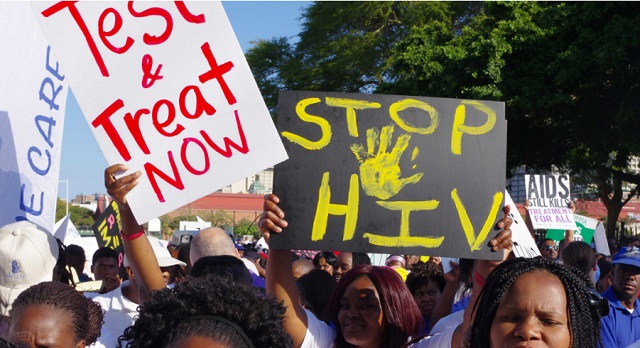
Ending the inequalities driving the AIDS epidemic requires progressive people-centred approaches
| AMIRA ELFADIL, WINNIE BYANYIMA AND PETER SANDS | On December 01, the African Union (AU) Commission, UNAIDS and the Global Fund to Fight AIDS, Tuberculosis and Malaria join the rest of the world to commemorate World AIDS Day 2021 under the theme “End Inequalities. End AIDS”.
This year marks an important milestone as the HIV community reach 40 years since the first reported case of HIV. These past 40 years of experience in the HIV response have provided evidence of what works and instilled a hope that solutions to the HIV epidemic exist. As we reflect on the journey, we celebrate the global solidarity and community resilience that has saved millions of lives in Africa.
There is evidence of a substantial reduction of AIDS-related deaths and new HIV infections globally in Africa in the last decade. However, the gains in the fight against HIV/AIDS remain unequal between and within countries. Decades of experience and evidence from the HIV response show that intersecting inequalities prevent ending AIDS in Africa. Vulnerable and socioeconomically disadvantaged groups report higher new HIV infections and lower access to the health care services they require. Young women and adolescent girls in Africa are at higher risks of contracting HIV due to structural, social and cultural factors. If we are to end AIDS by 2030, we must end inequalities. Furthermore, COVID-19 is exacerbating inequities and disruptions to services, making the lives of many people living with HIV more challenging.
HIV-related related policy frameworks endorsed by AU Member States call for an end to inequalities driving the AIDS epidemic. They strongly advocate for people-centred approaches that seek to have a deep understanding of the determinants of inequalities in HIV/AIDS response and their association to the risk of HIV infection and HIV prevalence.
Amira Elfadil, Commissioner for Health, Humanitarian Affairs and Social Development of the AU Commission, said “to achieve the HIV eradication targets set out in the AU Agenda 2063, Africa Health Strategy and the Catalytic Framework to end AIDS, TB, and Malaria by 2030, the African Union (AU) Member States must strategically and consistently implement the outlined recommended actions. They should also scale up and sustain HIV response efforts”.
UNAIDS Executive Director, Winnie Byanyima, emphasised that today we have the knowledge and tools to prevent every single new HIV infection and avoid every AIDS-related death but growing inequalities in access to healthcare, gender, race, and denial of human rights obstruct progress in the HIV response. “It’s time to invest, to match our political ambition and equip stakeholders to end AIDS by 2030,” Byanyima said, “Eliminating inequalities is not just the right thing to do; it is essential for making the world healthier and safer for all.”
The Global Fund’s Executive Director, Peter Sands said despite the fact that AIDS, tuberculosis, and malaria still kill millions of people each year across multiple countries and regions, these diseases are no longer talked about as pandemics, but are generally called epidemics, or endemic diseases.
“By epidemic,” he said, “we mean a pandemic that no longer kills large numbers of people in the richest countries. By endemic, we mean a disease the world could get rid of but hasn’t.”
He said HIV and AIDS, tuberculosis, and malaria should not be labelled as “just” epidemics or endemic. “They are pandemics that have been beaten in rich countries, and allowing them to persist elsewhere is a policy choice and a budgetary decision. Low- and middle-income countries are now concerned that the same will happen with COVID-19. As people begin to talk of the new virus becoming endemic, I hear alarm bells ringing…”
 The Independent Uganda: You get the Truth we Pay the Price
The Independent Uganda: You get the Truth we Pay the Price


